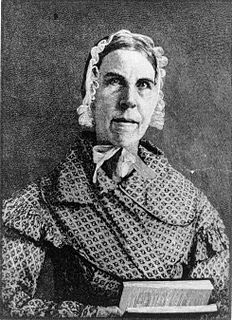A Quote by Edward Gibbon
Theodosius was chaste and temperate; he enjoyed, without excess, the sensual and social pleasures of the table, and the warmth of his amorous passions was never diverted from their lawful objects. The proud titles of Imperial greatness were adorned by the tender names of a faithful husband, an indulgent father; his uncle was raised, by his affectionate esteem, to the rank of a second parent.
Related Quotes
All history attests that man has subjected woman to his will, used her as a means to promote his selfish gratification, to minister to his sensual pleasures, to be instrumental in promoting his comfort; but never has he desired to elevate her to that rank she was created to fill. He has done all he could to debase and enslave her mind; and now he looks triumphantly on the ruin he has wrought, and say, the being he has thus deeply injured is his inferior.
Nothing is so insufferable to man as to be completely at rest, without passions, without business, without diversion, without study. He then feels his nothingness, his forlornness, his insufficiency, his dependence, his weakness, his emptiness. There will immediately arise from the depth of his heart weariness, gloom, sadness, fretfulness, vexation, despair.
The orator, who may be silent without danger, may praise without difficulty and without reluctance; and posterity will confess that the character of Theodosius might furnish the subject of a sincere and ample panegyric. The wisdom of his laws and the success of his arms rendered his administration respectable in the eyes both of his subjects and of his enemies. He loved and practised the virtues of domestic life, which seldom hold their residence in the palaces of kings.
No man worth his salt does not wish to be a husband and father; yet no man is raised to be a husband and father and no man would ever conceive of those relationships as instruments of his prime function in life. Yet every woman is raised, still, to believe that the fulfillment of these relationships is her prime function in life and, what's more, her instinctive choice.
My father had put these things on the table. I looked at him standing by the sink. He was washing his hands, splashing water on his face. My mamma left us. My brother, too. And now my feckless, reckless uncle had as well. My pa stayed, though. My pa always stayed. I looked at him. And saw the sweat stains on his shirt. And his big, scarred hands. And his dirty, weary face. I remembered how, lying in my bed a few nights before, I had looked forward to showing him my uncle's money. To telling him I was leaving. And I was so ashamed.
I learned respect for womanhood from my father's tender caring for my mother, my sister, and his sisters. Father was the first to arise from dinner to clear the table. My sister and I would wash and dry the dishes each night at Father's request. If we were not there, Father and Mother would clean the kitchen together.
Coming at twenty to his father's house, which was a very sink of filthy debauchery, he, chaste and pure as he was, simply withdrew in silence when to look on was unbearable, but without the slightest sign of contempt or condemnation. His father, who had once been in a dependent position, and so was sensitive and ready to take offense, met him at first with distrust and sullenness.





































